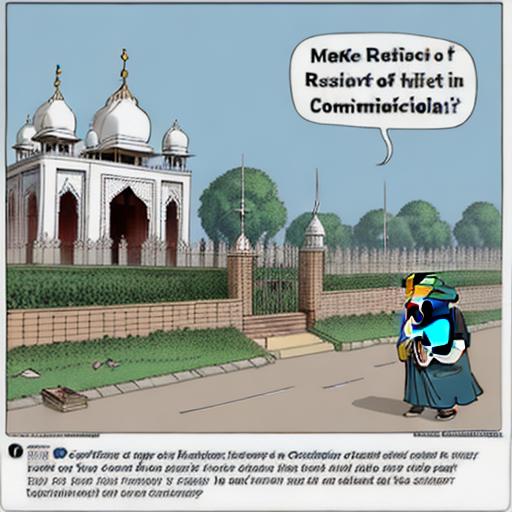Introduction
India, often celebrated for its rich cultural diversity and democratic ethos, faces a unique challenge during its elections: the intersection of religion and politics. Religion plays a significant role in the daily lives of millions of Indians, and it inevitably seeps into the political discourse. In this blog, we’ll explore the intricate relationship between religion, communalism, and Indian elections, shedding light on the impact, both positive and negative, that these factors have on the nation’s democratic process.
Religion in India’s DNA
India is a melting pot of religions, with Hinduism, Islam, Christianity, Sikhism, Buddhism, Jainism, and others coexisting for centuries. This religious diversity is enshrined in the Constitution, which grants citizens the right to practice and propagate their religion freely. While this secular foundation is a source of pride for many, it also creates a fertile ground for religious sentiments to be used as a political tool.
The Role of Communalism
Communalism, the use of religion or religious identity for political gains, often rears its head during Indian elections. Political parties, seeking to consolidate their voter base, have sometimes exploited religious fault lines to garner support. This can lead to communal tensions, polarization, and even violence. Communalism not only threatens the social fabric of the nation but also undermines the principles of secularism and inclusivity enshrined in the Constitution.
Positive Impact: Voter Mobilization
Religion isn’t always a divisive force in Indian elections. It can also be a powerful tool for voter mobilization, especially in rural areas where traditional hierarchies and community leaders hold sway. Religious leaders and institutions often encourage their followers to participate in the democratic process, emphasizing the moral duty to vote. This can significantly boost voter turnout and engagement, strengthening the foundations of democracy.
Negative Impact: Polarization
However, the darker side of religion in politics is the polarization it can fuel. Political parties have been known to make inflammatory religious statements or exploit historical grievances to create “us versus them” narratives. Such polarization can lead to violence, discrimination, and the marginalization of religious minorities. It hampers the nation’s progress and weakens the unity that is vital for a diverse country like India.
The Role of Identity Politics
Identity politics, which includes both religious and caste-based politics, often go hand in hand. While it’s important for marginalized communities to have their voices heard, it can also lead to further divisions. The focus on identity can overshadow pressing issues like economic development, healthcare, and education.
Secularism: The Bedrock of Indian Democracy
Secularism is a fundamental principle of Indian democracy, enshrined in the Constitution. It calls for equal treatment of all religions and the separation of religion from politics. While this ideal is noble, its practical application remains a challenge. Striking a balance between respecting religious diversity and preventing its manipulation for political gains is an ongoing struggle.
Conclusion
Religion and communalism undoubtedly play a significant role in Indian elections. While they can be a force for positive change, mobilizing voters and fostering a sense of civic responsibility, they can also be divisive, leading to polarization and violence. Striking a balance between respecting India’s religious diversity and upholding the principles of secularism is crucial for the nation’s democratic health.
Indian elections should be about choosing leaders based on their merit, policies, and commitment to the betterment of the nation rather than exploiting religious sentiments for political gain. It is up to the citizens, political leaders, and civil society to ensure that religion remains a source of unity and inspiration rather than a tool for division in the world’s largest democracy.

